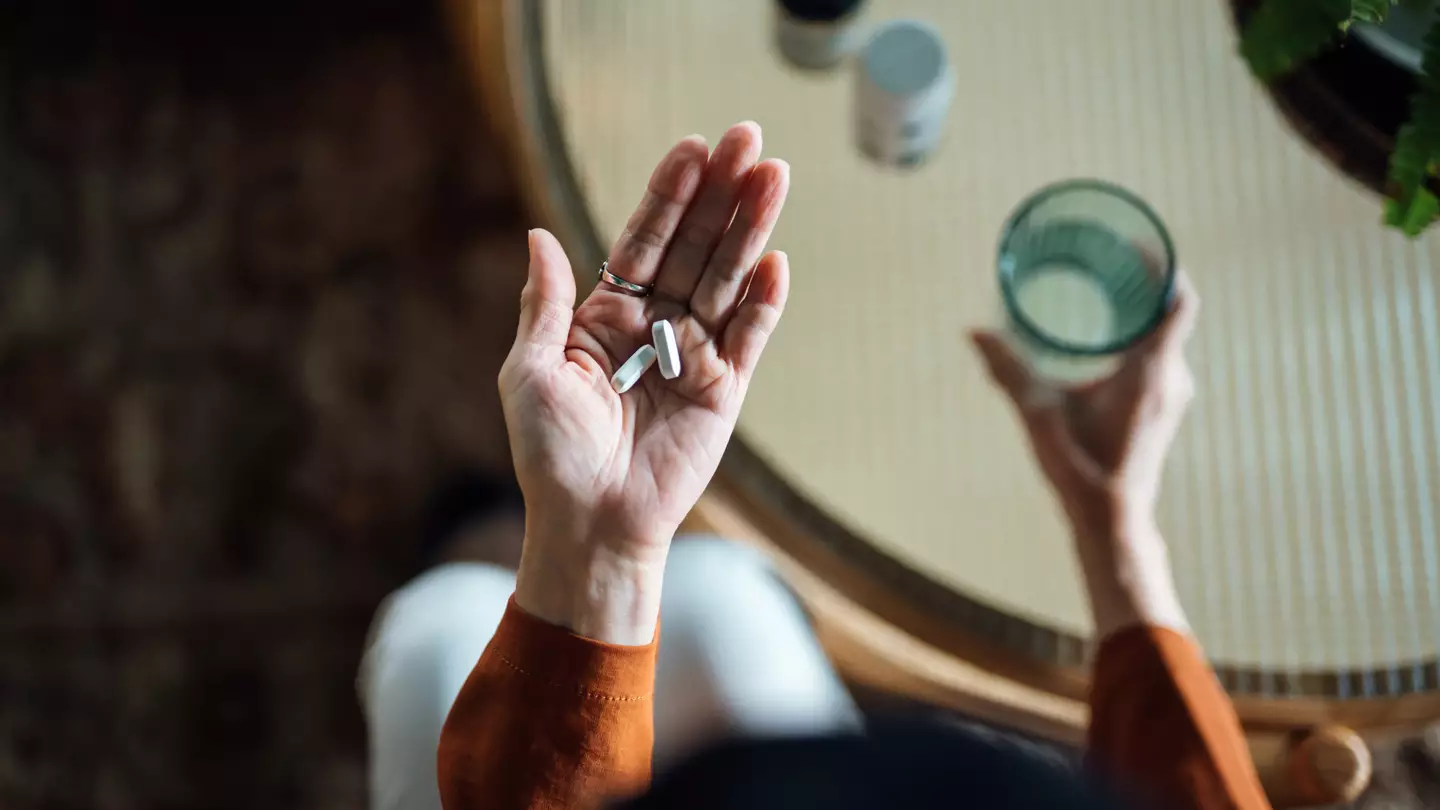
Doctors have issued an important message for those of us in the UK between the months of October and March.
Now, as we know, supplements are on the rise and according to the BBC, over 74% of Americans and two-thirds of Brits have turned to these kinds of pills.
But, if you're implementing them into your routine, it's important to do your research and make sure you're not accidentally taking too much, as this can lead to a whole slew of problems.
Brits have been told by the NHS that ideally, they need to be taking one important supplement every single day to keep themselves healthy.
Advert
A lack of this vitamin can lead to bone deformities such as rickets in children, and bone pain caused by a condition called osteomalacia in adults.
Having enough of it in our system helps regulate the amount of calcium and phosphate in the body, which are essential nutrients needed to keep bones, teeth and muscles healthy.

We're of course talking about vitamin D.
The NHS put a message out on social media this week, writing on Twitter: "From October to March we can’t make enough vitamin D from sunlight, so to keep bones and muscles healthy, it’s best to take a daily 10 microgram supplement of vitamin D. You can get vitamin D from most pharmacies and retailers."
From roughly late March until the end of September, most people should be able to make all the vitamin D they need from sunlight.
This is because the body creates it from direct sunlight on the skin when outdoors.
However, with the clocks going back and daylight being seriously lacking, this time of year makes things a little more tricky, hence the NHS advice.
While it may seem like a pain, forking out less than a tenner for a tub of tablets could seriously help you in the long run.

How much vitamin D do I need?
The NHS advises that adults and children older than one need 10 micrograms (mcg) of vitamin D a day.
This includes pregnant and breastfeeding women, and people at risk of vitamin D deficiency.
Babies however, younger than a year old, need 8.5 to 10 micrograms of vitamin D a day.
Before buying any supplements, make sure to check they're the right amount and make sure you're not taking more than 100 micrograms a day as it could be harmful.
The Department of Health and Social Care recommends that a select group of people should also be taking vitamin D throughout the entire year.
This includes adults and children over four who:
- are not often outdoors - for example, if they're frail or housebound
- are in an institution like a care home
- usually wear clothes that cover up most of their skin when outdoors

How else can I make sure I'm getting enough vitamin D?
The NHS outlines that Vitamin D is also found in a small number of foods, including:
- Oily fish such as salmon, sardines, trout, herring or mackerel
- Red meat
- Egg yolks
- Fortified foods – such as some fat spreads and breakfast cereals
- Liver (avoid liver if you're pregnant)